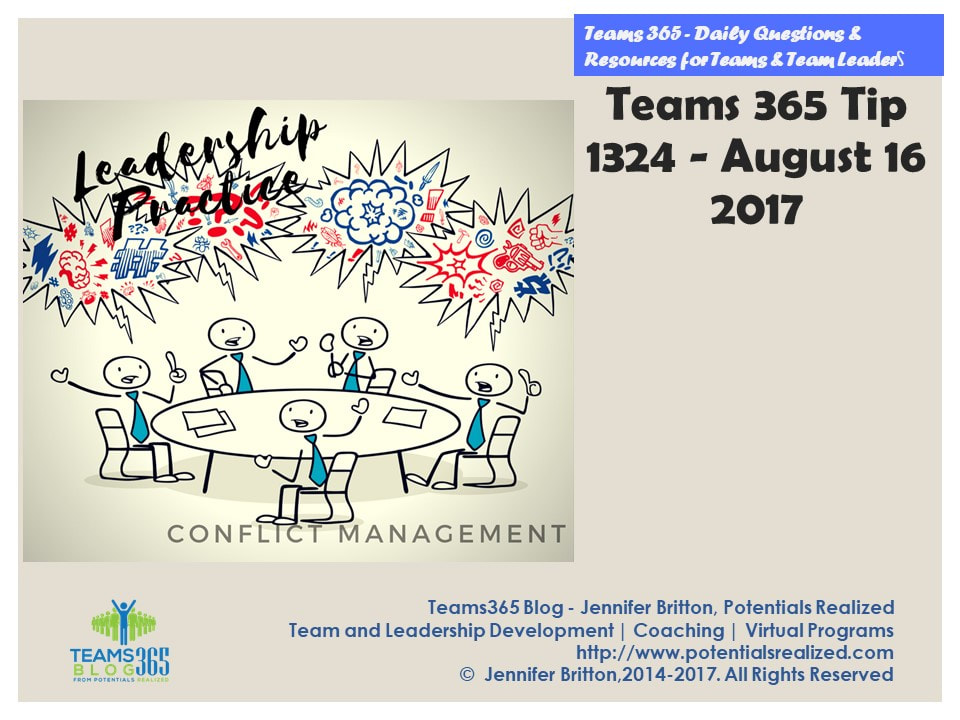"Conflict is inevitable in a team, in fact, to achieve synergistic solutions, a variety of ideas and approaches are needed. These are the ingredients for conflict".
Susan Gerke, former manager at IBM, Leadership Development, currently President of Gerke Consulting & Development (as quoted at the Team Building Portal - https://www.teambuildingportal.com/articles/team-failure/good-bad-conflict
Conflict resolution is a skill set which many team leaders struggle with -either because they have not seen it modeled well themselves, they lack skills in this area, or it may be due to their own mindset around conflict.
In addressing any conflict at the team level it can be important to start by exploring several questions including;
What is this conflict about? What's at the core of it? Conflict is created for many reasons. It may be part of the natural "Storming stage" when teams form. As Bruce Tuckman found decades ago, teams move through a storming stage which is characterized by both overt, and subtle, conflict. This exists in virtual teams as well. As team members try to figure out how they fit in and why they exist as a team, conflict is a natural bi-product. Where conflict gets tricky is when teams don't see this as the natural part of team development, they don't have skills to move through it, or they see it as dysfunctional.
Conflict can also be created due to lack of resources, and information. This is an different scenario.
Conflict may also emerge due to different styles and approaches. this is one of the most common ones that I experience with teams that I work with. At the core of this is often creating a common framework and language to understand the differences which exist on the team, and learning to understand how to adapt our own approaches to work more effectively with others.
If you are facing conflict in your team right now, what's at the root?
What's our common ground? In most conflict models which exist today part of moving to an understanding and then resolution of the situation is understanding what your common ground is about. If the conflict is between two people, or two groups, what is the common ground? What is the one thing (or things) you both are working towards?
What's at stake? In exploring conflict, it's also important to understand more fully from all parties involved, what is at stake? If this issue is not resolved, what will happen? Usually in exploring what's at stake, some important clues, and conversation areas come to light.
What can we do to create a win-win? With many instances, it is important to find a solution which creates a win-win for the parties involved. For other issues it may be ok to accommodate to the other if the issues and outcome is more important to them, or if that relationship is more important for us to maintain.
Helping team members understand their natural approach to conflict is an important part of the process. Do we naturally compete? Do we naturally accommodate? Against the back-drop of working with teams and their development, this is another key area for exploration between leaders and their teams. It may be an area you want to reach out for support around. I know in my work as a team coach and team developer, this is an area we often get many requests in.
What are the other questions you want to consider in exploring conflict?
Best
Jennifer
Potentials Realized | Coaching Team Leaders
Team and Leadership Development | Coaching | Retreats.
Follow us on Twitter @Teams365
Phone: (416)996-8326
My newest book - Effective Virtual Conversations - is now available. Purchase a copy at our site or on Amazon.

 RSS Feed
RSS Feed





